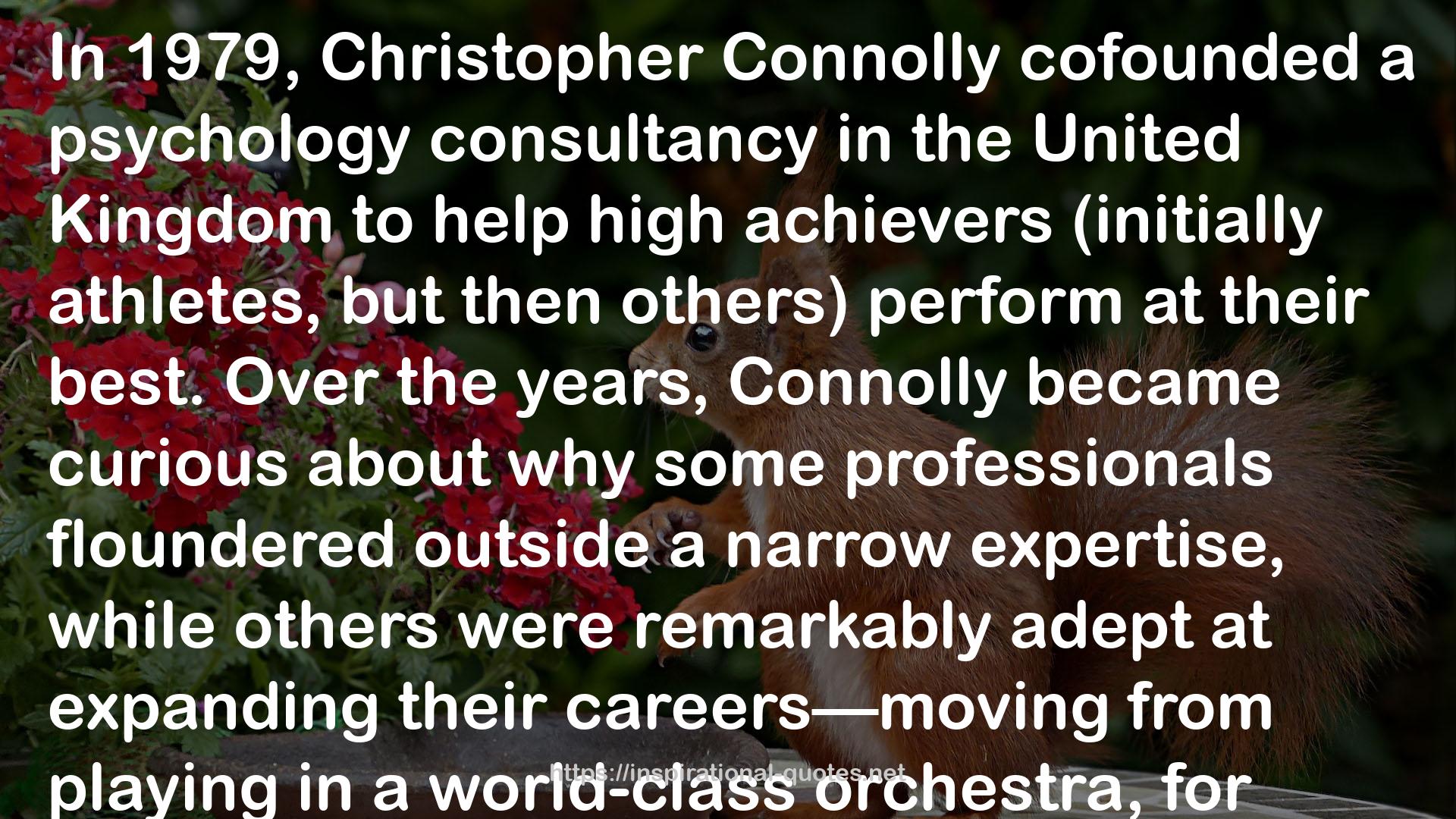" In 1979, Christopher Connolly cofounded a psychology consultancy in the United Kingdom to help high achievers (initially athletes, but then others) perform at their best. Over the years, Connolly became curious about why some professionals floundered outside a narrow expertise, while others were remarkably adept at expanding their careers—moving from playing in a world-class orchestra, for example, to running one. Thirty years after he started, Connolly returned to school to do a PhD investigating that very question, under Fernand Gobet, the psychologist and chess international master. Connolly’s primary finding was that early in their careers, those who later made successful transitions had broader training and kept multiple “career streams” open even as they pursued a primary specialty. They “traveled on an eight-lane highway,” he wrote, rather than down a single-lane one-way street. They had range. The successful adapters were excellent at taking knowledge from one pursuit and applying it creatively to another, and at avoiding cognitive entrenchment. They employed what Hogarth called a “circuit breaker.” They drew on outside experiences and analogies to interrupt their inclination toward a previous solution that may no longer work. Their skill was in avoiding the same old patterns. In the wicked world, with ill-defined challenges and few rigid rules, range can be a life hack. Pretending the world is like golf and chess is comforting. It makes for a tidy kind-world message, and some very compelling books. The rest of this one will begin where those end—in a place where the popular sport is Martian tennis, with a view into how the modern world became so wicked in the first place. "
― David Epstein , Range: Why Generalists Triumph in a Specialized World
